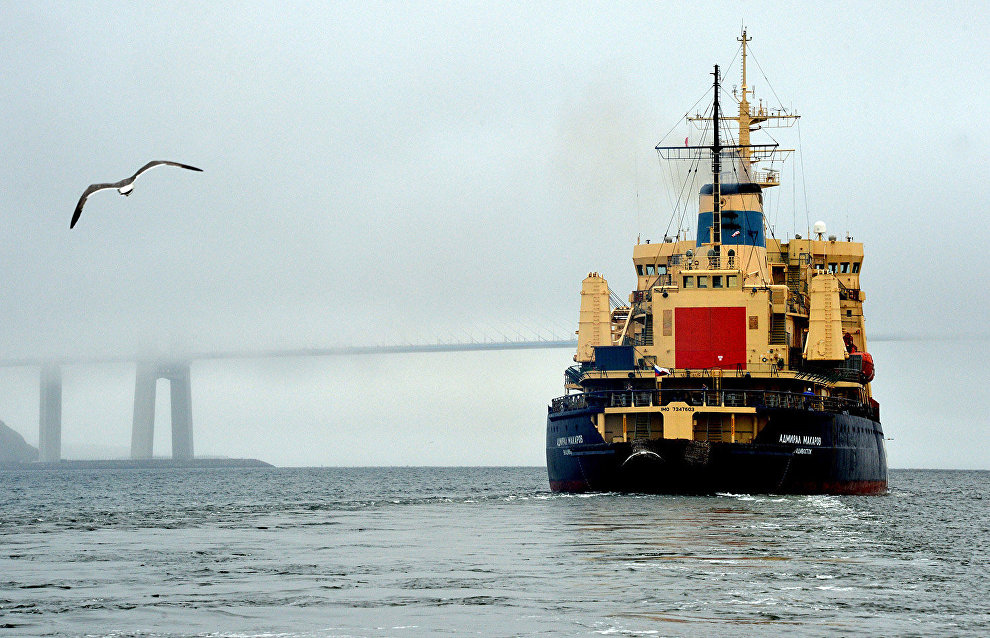The Northern Sea Route's influence on the Arctic will grow
The development of the Northern Sea Route will inevitably influence economic progress of adjacent territories in the Arctic region of the Russian Federation. Alexander Vorotnikov, Coordinator of the Expert Council for the Development of the Arctic, expressed this opinion during a discussion club meeting on "The Northern Sea Route as a Driving Force in the Development of the Arctic Region of the Russian Federation."
"An example of this kind of influence is the Trans-Siberian Railway which was built for transportation to the Far East but became a driving force in the development of the adjacent territories," the expert said.
The concept of basin development has deep historical roots because people usually settle on the banks of large rivers.
"Historically large rivers like the Ob, the Yenisey and the Lena are economic ecosystems," Vorotnikov added.
Alexei Fadeyev, a leading research associate at the Luzin Institute for Economic Studies at the Kola Science Center of the Russian Academy of Sciences, also expressed the opinion that the development of the Northern Sea Route should not just focus on fuel exports and transit but also on the development of adjoining areas. He said that other Arctic countries, where one of the main goals of Arctic projects is to include small and medium businesses, are also following this approach.
"In Norway a substantial proportion of work related to oil deposits is performed by companies that seem to have nothing to do with the oil business. One job in the Arctic area creates about 14 jobs in the surrounding regions, on average," the expert said.
The majority of experts also agreed that it is necessary to expand the types of cargo being shipped along the Northern Sea Route and to improve the port infrastructure so that the development of the adjacent areas will be stable.
"Currently 95 percent of the freight traffic volume on the Northern Sea Route is natural resources, while the supply of goods to the northern territories (Northern Supply Haul) and transit traffic account for only 5 percent," said Mikhail Grigoryev, Director of Gekon Consulting and member of the science and engineering boards at the Ministry of Natural Resources and Environment and the Ministry of Transport.
Vladimir Masloboyev, Adviser to the Chair of the Federal Research Center at the Kola Science Center of the Russian Academy of Sciences reminded his colleagues that with the development of the Northern Sea Route it is also important to take preventive steps to protect the environment in the region. "When a large number of ships appear it is important that waste from the ships not pollute the Arctic area," he said.
